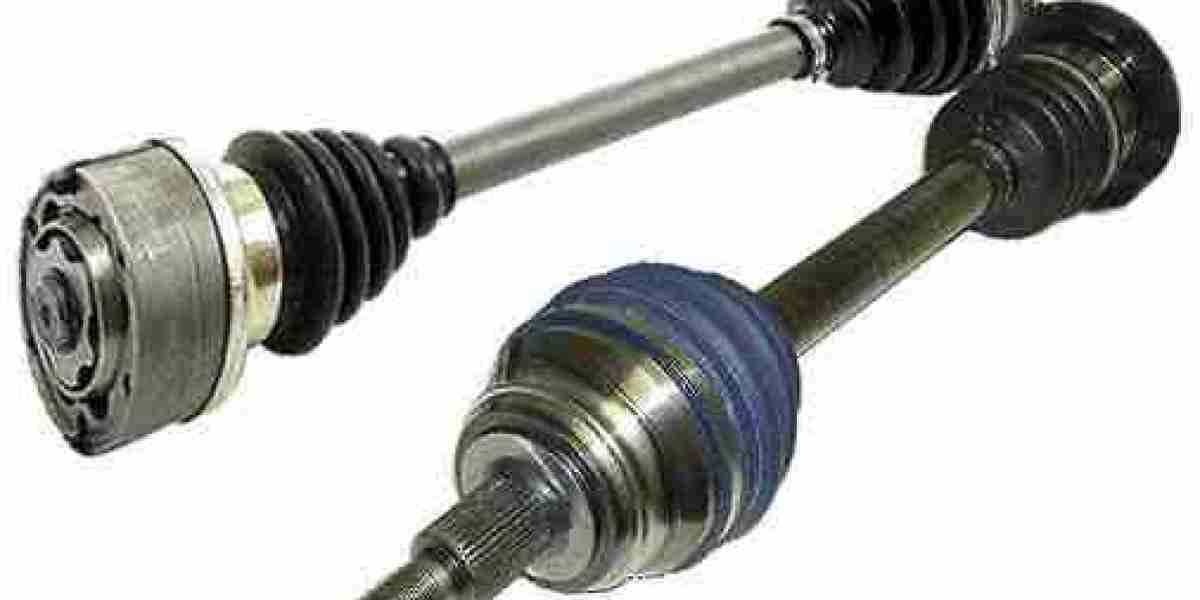The automotive axle market is on a steady growth trajectory, driven by advancements in vehicle electrification, lightweight materials, and automation. As automotive manufacturers focus on enhancing fuel efficiency, durability, and performance, the demand for innovative axle technologies continues to rise. Investments in smart axles, electric axle systems, and AI-driven manufacturing processes are shaping the future of the industry.
Factors Driving the Future Growth of the Automotive Axle Market
Rising Demand for Electrified and Hybrid Vehicles
The shift toward electric mobility is a primary factor influencing the growth of the automotive axle market.
- E-axles are gaining traction as they integrate electric motors, power electronics, and transmission into a single unit, reducing weight and improving efficiency.
- Automakers are investing in lightweight aluminum and composite axles to enhance battery range and vehicle performance.
- Hybrid vehicles require regenerative braking axles, which improve energy efficiency and extend battery life.
Technological Advancements in Axle Design
Manufacturers are incorporating cutting-edge technologies to enhance axle durability, reduce weight, and improve performance.
- Smart axles with IoT integration enable real-time monitoring of axle health, reducing maintenance costs.
- Adaptive suspension axles improve ride comfort and vehicle stability, particularly in premium and off-road vehicles.
- AI-driven axle production optimizes design and manufacturing, reducing defects and production time.
Expanding Automotive Production in Emerging Markets
Developing economies, particularly in Asia-Pacific and Latin America, are witnessing a surge in automobile production, creating new opportunities for axle manufacturers.
- The growth of domestic vehicle manufacturing in India, China, and Brazil is driving demand for high-performance axle systems.
- Infrastructure investments and urbanization are increasing the demand for commercial vehicles, boosting the adoption of durable axles.
- Local axle manufacturers are forming strategic alliances with global OEMs to cater to expanding automotive markets.
Key Investment Areas in the Automotive Axle Market
1. E-Axles and Electrification Technologies
Investment in electric axle systems is crucial for supporting the global transition to electric vehicles (EVs).
- Companies are focusing on integrated e-axle solutions, which combine motor, inverter, and gearbox in a compact unit.
- Axle-mounted electric motors are reducing drivetrain complexity and enhancing energy efficiency.
- Investments in battery integration with axle designs aim to improve overall vehicle power management.
2. Lightweight Materials and Sustainable Manufacturing
The growing emphasis on vehicle weight reduction is pushing investments in advanced materials for axle production.
- Carbon fiber and aluminum-based axles are replacing traditional steel components to enhance fuel efficiency.
- 3D printing technology is being adopted to create lightweight axle components with complex geometries.
- Sustainable manufacturing practices are gaining attention, with companies focusing on reducing carbon footprints in axle production.
3. Autonomous and Smart Axle Technologies
The development of autonomous and semi-autonomous vehicles is accelerating innovation in axle technology.
- Sensor-equipped smart axles provide real-time data for autonomous vehicle navigation and safety features.
- Self-adjusting axles adapt to different road conditions, enhancing vehicle handling and stability.
- AI-powered predictive maintenance reduces downtime and extends axle lifespan.
4. Expansion of Aftermarket Axle Services
The automotive axle aftermarket is growing, creating investment opportunities in repair, replacement, and performance-enhancing axle components.
- Remanufactured and refurbished axles are in demand, providing cost-effective solutions for vehicle owners.
- Customization options for performance vehicles, including heavy-duty and off-road applications, are attracting investments.
- Companies are leveraging digital platforms to improve axle distribution and aftermarket sales.
Future Outlook for the Automotive Axle Market
The automotive axle industry is poised for significant growth, driven by technological advancements and the evolving automotive landscape.
- E-mobility investments will dominate the market as EV adoption accelerates.
- Smart manufacturing processes, including robotics and AI, will enhance production efficiency.
- Partnerships between automakers and axle manufacturers will drive innovation in next-generation axle systems.
Final Thoughts
The future of the automotive axle market lies in innovation, electrification, and sustainability. As the industry shifts toward smart mobility solutions, manufacturers and investors must focus on advanced axle technologies that enhance efficiency, safety, and durability. By capitalizing on key investment areas such as e-axles, AI-driven manufacturing, and lightweight materials, stakeholders can position themselves for long-term success in this dynamic market.














